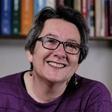Fran Hill believes studying English Literature will enhance your understanding of life and faith
’All truth is God’s truth’ St. Augustine (A.D. 354-430). Premier NexGen celebrates all that children learn at school as well as being aware that subjects are taught in a way that leaves God out of the equation. In this series looking at key subjects in the curriculum, Fran Hill outlines how we can study and benefit from English Literature. See others in the series here and here.

In 1979, I turned 17. I was a brand-new believer and at college, becoming a medical secretary.
I was also a naïve and irritating young zealot.
On conversion, I’d tossed onto a bonfire a ring binder heavy with my own angst-ridden, honest poems about love and loss. God would disapprove of them, I’d decided. I also ditched reading beloved ‘secular’ fiction to concentrate solely on the Bible, Christian testimony books and terrifying novels about the Second Coming.
I lost years, and am still catching up. Not until my early 30s did I pick up secular fiction again, also enrolling on a creative writing class. At 39, I sat English A level. This led to an English degree, a PGCE and a move from the NHS into English teaching. Simultaneously, my writing career gained momentum.
I’m now 60, a retired teacher and full-time author. But I’m also a Christian (hopefully less irritating).
What would I say now to my 17-year-old self about whether her writing and reading might compromise her faith?
Who invented creativity?
Let’s think about who invented literature. Literature, alongside art, dance or music, is a God-inspired God-given creative medium. Poetry, fiction and drama have, for centuries, helped us express the breadth of human experience. Repressive regimes and societies know this. They don’t want breadth. It’s why they destroy, censor or ban literature, forcing writers into exile.
In ‘Fahrenheit 451’ by Ray Bradbury, books are burned by an American regime that believes literature to be harmful and subversive, empowering people to challenge authority and doubt what they’re told.
But this is precisely why we need it, and why it’s tragic that the numbers studying literature at A level and degree level have slumped1.
Bans and censoring can backfire, anyway. Banned Books Week was launched 40 years ago2 putting regular sharp focus on suppressed books. As soon as we yell ‘Don’t read that!’, curious minds – and teenagers’ minds are 99% curiosity – make a beeline.
Instead, let’s bring literature into the light where it can be examined, tested and judged alongside God’s ideas as well as our own and those of others.
Studying literature with a skilled teacher confronts an English class with the opinions, not merely of the writer, but of critics, reviewers and commentators. Students gain confidence in weighing up those opinions, learning to spot bias. They realise that they’re allowed to say ‘That doesn’t add up’ and ‘They haven’t considered this argument’ even about so-called experts.
Expanded outlook
Literature offers a smorgasbord of other people’s worlds, experiences, beliefs and ideologies, against which teens can ask, ‘If I was part of that society portrayed in, say, Golding’s Lord of the Flies, or Shakespeare’s Macbeth, or Atwood’s The Handmaid’s Tale, how would I have felt? With which characters and viewpoints do I sympathise? How is religion portrayed here? How would I deal with that moral dilemma? How do I feel about the way sexuality is presented? What does the Bible say?’
We can be afraid of this experimentation with ideas in case it destabilises faith. But we need teenagers to interrogate, otherwise they scroll through Instagram or TikTok, sucking in fake news and false teachings and believing advertising or political spin. They must feel free to probe others’ ideas.
Their questioning is welcome, but we need, if they’ll let us, to get involved in their search for answers.
Yes, some content in literature is unpalatable: humanity has a propensity towards evil and our literature reflects and explores this. This is inevitable: at the heart of story is conflict, and the confrontation between good and evil a constant theme.
However, the Bible itself isn’t short of uncomfortable stories. God hasn’t sanitised the story of humankind and I don’t think He expects us to either. There’s no way round it: Jael rams that stake into Sisera’s forehead, Lot’s daughters get him drunk and have sex with him, and the description of the crucifixion doesn’t hold back. Neither was Jesus’ own storytelling easy listening. People are mugged and ignored. Workplaces are corrupt. Children exploit their parents’ goodness. Rich men plead for mercy from a fiery torment.
But, as in those Biblical examples, from conflict in literature emerge justice, mercy, reconciliation, forgiveness and atonement and other qualities that show humans in their best light: the image of God. The bleakest, most nihilistic stories can lack these elements, and a well-run literature class will ask why. Usually, though, whether fairy tale, Shakespeare play, rom-com or novel, we can say to some extent, ‘That ended how it should.’ Surely this need for resolution is built into us by God, who knows all about resolutions.
Christian teenagers have a huge advantage in a literature class. I noticed increasingly how few students understood allusions and references to, for instance, the Garden of Eden, Noah, the Exodus, the Good Samaritan, the Nativity, or the idea of sacrifice. But classic and contemporary writers alike use these references, adding layers of meaning that your Sunday-Schooled child will get – hurrah!
How can you support a Christian teenager studying literature?
Read the books. Watch the plays. Share your positive ideas first. Then you can raise concerns from a credible position.
Try not to over-react to swearing or sex scenes. Concentrate on major themes, characters and events in the text and let other issues emerge naturally in discussion.
If your teens are happy to share, look at their class notes. You’ll see what was focused on.
Encourage them into ‘thinking time’ when they review their notes, to consolidate any new perspectives.
Involve yourself in their homework assignments. Offer exploratory discussions on practice essay titles before exams.
Research the texts yourself for useful reviews, commentaries or critique to help your discussions.
Talk to the English teacher if you are seriously worried about aspects of a certain text. Dialogue wins over hidden anxieties.
Finally, if your teenager loves to write, spur them on. The English teacher, school librarian or regional literature agency will know what opportunities exist for young writers in your area.3
And, please, don’t let your teens burn their collected works.
2. https://www.bbc.com/culture/article/20220921-the-dangerous-books-too-powerful-to-read
3. https://nationalcentreforwriting.org.uk/literature-organisations




























